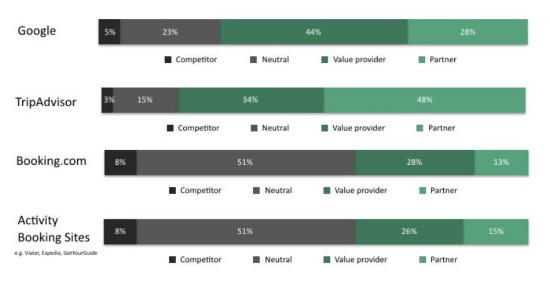
Tourism boards admit large effort needed for relevancy in digital world
By cameron in Uncategorized
The role and operations of tourism boards have changed massively in recent years as they continue to figure out what their position is in the travel foodchain.
Most made the move from being an in-destination bureau and awareness-raising marketing machine to online service many years ago, yet regulations (for some), funding (for many) and ability often restrict their ambitions for how they want to attract and service visitors to a city, region or country.
The impact of mobile, entrance of non-affiliated content sites and general booking services into the mix has made many tourism boards the forgotten brothers and sisters of the online travel world.
In a recent poll and analysis of 61 tourism boards around the world by Trekksoft, nearly three-quarters claim it takes “a lot of effort to stay digitally relevant” in the industry.
This is despite, according to the research, more than half of their budgets being spent on digital activities.
The goal of such organisations has not changed particularly much over the years, it appears, with all stating that their main aim is still to improve “brand identity” of their respective locations.
But what they do as digital entities is changing, of course, but how they do so remains a challenge.
Just 9% claim to have a “cutting-edge digital strategy”, with 9% admitting to being behind the rest of the industry and 55% stating that they “try their best”.
In terms of what is an important part of the digital strategy, experiences (where Trekksoft’s interest in tourism boards comes in) are considered by over half as a vital component, with around a third saying “quite important”.
Enthusiasm for integrating information about experiences into a digital strategy is fairly mixed, with just over half of tourism boards having a section on their respective websites and four out of ten using experiences as a cornerstone of their wider marketing efforts.
Still, some two-thirds have some form of booking functionality for travel products on their websites, covering hotels, restaurants and experiences.
The report says:
“For 49% of organisations, the planning stage of travel is the most important time to reach consumers.
“Yet the online space is crowded, and DMOs can seem to struggle to stand out from the industry giants, OTAs, and metasearch engines in the travel customer journey.”
Full response here:

NB: Download the research here.
NB2: Beach mobile image via Pixabay.
![]()

